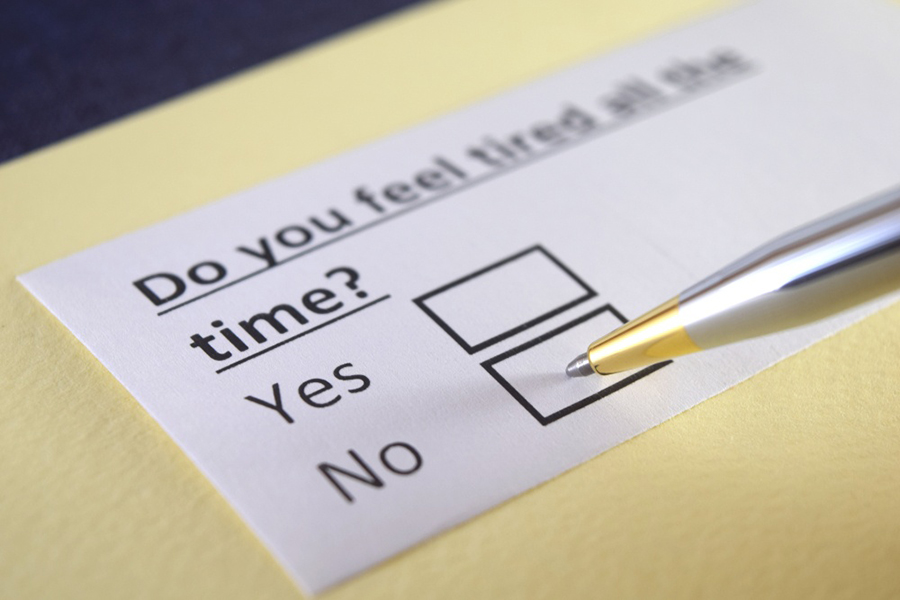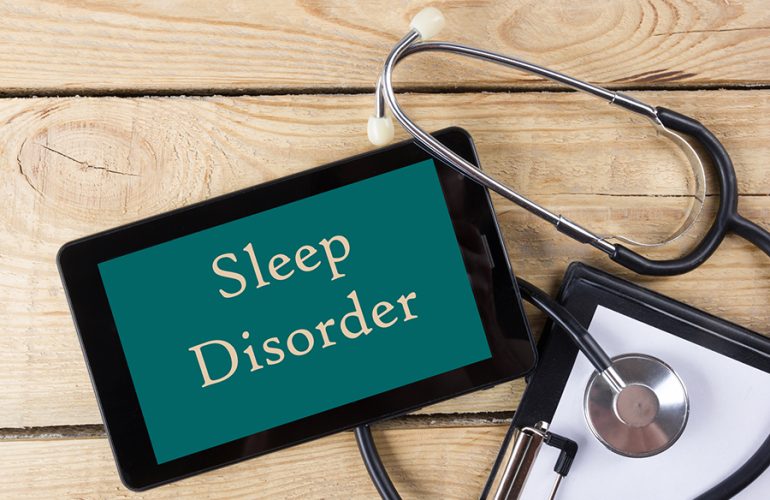If you’re having trouble sleeping, if you snore, or if you have excessive daytime sleepiness on a regular basis, it could be that you have a sleep disorder. The time may be right for you to visit a board-certified sleep specialist. A diagnosis can help you get a plan together to improve your sleep and your health.
But what exactly is a sleep medicine specialist (a.k.a., sleep doctor or sleep physician), and how do you know the time is right for you to get a consultation?
What Is a Sleep Medicine Specialist/Doctor?
Sleep medicine specialists are physicians with additional, specialized training in the field of sleep—specifically, in the area of diagnosing and managing sleep disorders.
A sleep doctor with board certification demonstrates a high level of dedication to the study and understanding of sleep and the role it plays in general health. He or she is authorized to practice sleep medicine—to provide medical care to individuals of all ages with various sleep disorders.
These sleep disorders can include:
- insomnia (difficulty falling asleep or staying asleep)
- sleep apnea and snoring (stopping breathing during sleep)
- parasomnias (for example, sleepwalking)
- sleep motion disorders (like restless legs syndrome, the urge to move one’s legs while trying to fall asleep)
- a number of other related sleep conditions
Many sleep disorders can have serious, long-term impacts on your health. A board-certified sleep physician has a comprehensive understanding of how sleep affects your body and your mental health. She or he is able to design a plan to improve your sleep—improving your quality of life and your preventative care.
Sleep physicians can prescribe therapies, including medications and medical device therapy (such as oral appliance therapy or CPAP for apnea), and can refer patients to other specialists as needed (for example, for cognitive behavioral therapy to help insomnia or physical therapy to help open the airway and breathe better).
Sleep is a complex area of study and treatment. It affects almost all the systems of the body, including the nervous system, endocrine system, and cardiovascular system. Because of this, sleep medicine physicians often operate out of practices called “sleep centers” or “sleep clinics” that also may include, or consult with, other experts on sleep. For example, sleep technologists are certified to administer sleep studies and other tests related to the diagnosis and management of sleep disorders. Sleep technologists and sleep medicine physicians work closely together to gather the information needed to make a diagnosis, especially in the case of sleep disorders that require observation.
Depending on the size of the practice, a sleep medicine physician may also consult with or partner with specialists who can help with the management phase of a sleep disorder, including a sleep medicine dentist, a sleep behavior expert, and a sleep surgeon. However, the first step to treating or managing a sleep problem is being seen, examined, and diagnosed correctly.
According to the American Academy of Sleep Medicine (AASM), which provides accreditation to sleep specialists, you can do this at over 2500 accredited sleep centers and sleep medicine practices across the United States today.
If you are one of the 50–70 million Americans who live with a sleep disorder, you will likely have no problem finding a sleep physician near you. Sleep disorders are common and widespread; the field is growing every year. More and more physicians are becoming board-certified in order to help treat sleep issues and improve the overall health of the population.
Remember, too, that sleep disorders affect people of all ages (including infants and children), all sizes, and all backgrounds, in all parts of the country. There’s no shame in seeking help if you snore or are not getting the rest you need.
When Should You See a Sleep Specialist?
If you have been having trouble sleeping for a long period of time, seeing a sleep specialist now may help. Some other specific indications you may have a sleep disorder and should seek a consult:

- Changing your sleep environment and habits (such as wake time, bed time, bedding, lighting, noise level, or caffeine intake) is not helping to improve your quality of sleep, or quantity.
- You are very tired during the day, even after a full night’s sleep.
- You take too many naps or fall asleep at work, in school, or when driving.
- You’re snoring, choking, or gasping during sleep; you awaken daily with a sore throat.
- You have unwanted sleep movements, behaviors, or other phenomena during sleep, right before you fall asleep, or right after you awake (such as moving your legs around, sleepwalking, sleep talking, sleep paralysis, etc.). You may not know you have these behaviors, but your sleep partner or a family member may witness these events happening.
- You wake up with a headache, jaw ache, or other pain.
Of course, many other possible symptoms exist, but these are some of the most common complaints people with sleep disorders bring to sleep medicine specialists. As soon as you notice a pattern of behavior or symptoms, make an appointment. There’s no disadvantage to getting screened early, and putting off a diagnosis can put your health at risk.
Why See a Sleep Specialist?
If you indeed have an undiagnosed sleep disorder, seeing a sleep specialist is vital to preserving and improving your health. If left untreated, disorders like sleep apnea increase your risk of high blood pressure, heart attack, stroke, diabetes, depression and weight gain.
The same can be said of a number of other sleep disorders. Getting insufficient sleep or fragmented (interrupted) sleep can put you at risk for a number of serious health problems.
Also, the particular sleep disorder you have dictates how you should treat it—but a physician without specialized training may not be able to determine a proper diagnosis. Many sleep disorders resemble each other, and still others require observation and testing. A trained sleep specialist understands that there are over 80 different sleep disorders, all with different underlying causes. These causes could be anatomical, psychological, neurological, or related to diet or medications.
A board-certified sleep specialist will be able to hone in on both the specific disorder and what’s behind it. He or she has the capabilities, experience, and testing equipment to accurately diagnose your particular condition and design a management plan for getting it under control.
Seeing a specialist in this field is critical to getting the right assessment and direction in order to make an appropriate diagnosis
How to Find a Sleep Specialist Near You
You can search the web, which increasingly provides local area results tailored to where you live. For example, you can Google “sleep doctor near me,” “sleep specialist near me,” or “local sleep apnea specialist,” or a similar phrase. Entering your city, metropolitan region, or state can help to tailor your results.
If you live near Kansas City, Shawnee, Kansas or Leawood, Kansas, you can also call our sleep center, Sweet Sleep Studio.
Dr. Abid Bhat has been in the practice of Sleep Medicine for over 10 years. He has given lectures on sleep medicine at the local and national levels and his research has been published in a number of reputed national and international journals. Dr. Bhat is regularly featured on local news channels as well. He has lived in Kansas City since 2006 and is happy to bring his expertise about sleep to the local community.
Call Sweet Sleep Studio in Kansas to make an appointment today at (913) 221-6059.




